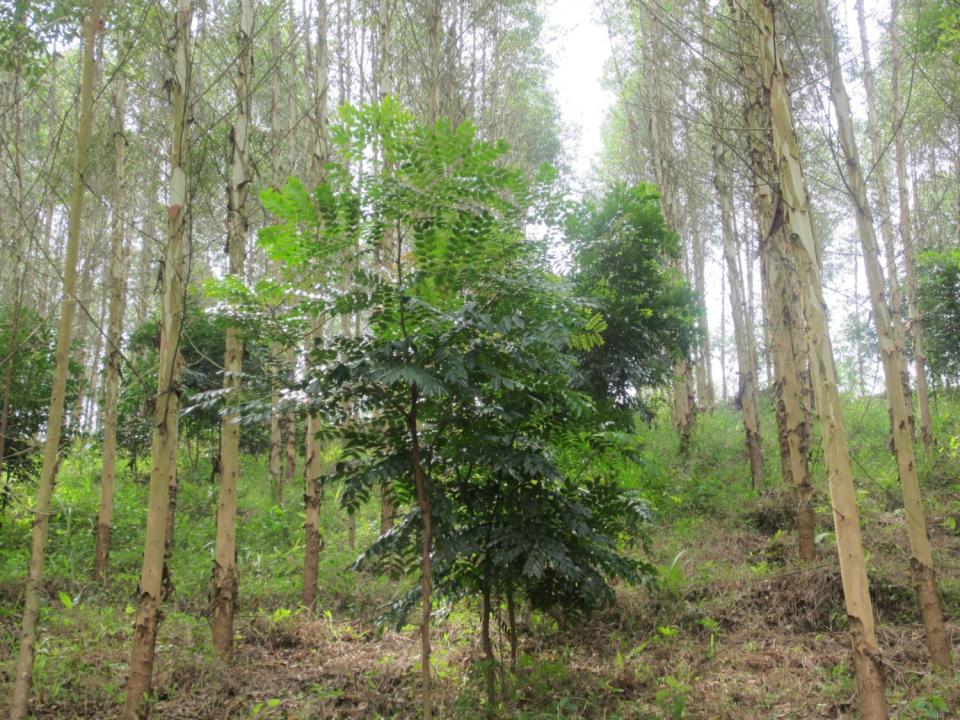Congress Spotlight #71 – High Time to Again Pay More Attention to Ecological Processes in Sustainable Forest Management
Human needs and our environment continue to change. Because of that, forest management practices, in terms of sustainable forest management (SFM), need to be updated, said Dr. Liu Shirong, Professor of Forest Ecology and Hydrology and President of the Chinese Academy of Forestry, Beijing, China.

“Forests are the key component of terrestrial ecosystems and play an important role in regulating global carbon cycling, protecting biodiversity and other ecological processes such as hydrology and nutrient dynamics,” said Dr. Liu, who is also a Deputy Coordinator of IUFRO Division 8 – Forest Environment.
“We must learn to take the ecological processes and interactions into consideration when we manage forests. Harvesting, thinning, mixed wood management, riparian vegetation management and road construction can all greatly influence those processes and consequently their associated ecological functions and services,” he said.
“Understanding the responses of these critical ecological processes – biodiversity, carbon, water and nutrients – and their interactions to various forest management practices is essential for designing suitable, sound and sustainable forest management strategies.”
Dr. Liu will lead a session entitled: Forest Management Practices and the Responses of Soil Carbon, Water, Nutrients and their Interactions at the IUFRO World Congress in Brazil this autumn.
“Our session will discuss basic ecological processes and their interactions in various forest ecosystems as well as biodiversity and ecosystem functions and services in relation to forest management.
“Combining new and existing ecological knowledge, innovation and shared understanding, we hope to provide information that will address obstacles and enhance SFM approaches and processes.”
He said the lack of updating is “a concern for all forests, and speakers will be covering a range of forest types including tropical, temperate and boreal.
“Unfortunately, many forests are being managed without taking the ecological processes and interactions into consideration.”
There are two main reasons for that, Dr. Liu said, both of which revolve around the extent of our understanding.
“One is that our understanding of the interactions is limited. For instance, the relationship between biodiversity and ecosystem functioning has been widely discussed globally. But, how biodiversity regulates ecosystem functioning at different temporal-spatial scales and what the underlying mechanisms are, remains a matter of debate.
“The second relates to our understanding of the impacts and implications of management practices on the ecological processes and interactions within forests and the wider landscape, which is still quite limited,” he said.
“That means we need further research – both basic and applied – on the processes and interactions that underpin ecosystem services as they relate to forest management.”
Short-term economic return and maximizing profits are two of the obstacles that can prevent the processes and interactions from being factored into management decisions, he said. “Ecological and long-term economic elements should both be recognized and accommodated at the same time to ensure SFM.
“Timber production and stand growth are only part of the forest management equation. A range of ecosystem services – water conservation, carbon sequestration, site productivity, soil quality and biodiversity protection – need to be taken into account.
“In this regard, multipurpose forest plantations, for example, have an advantage over monoculture or timber-centred plantations by increasing synergy and reducing trade-off potentials or conflicts among different ecosystem services,” Dr. Liu added.
His session will cover a wide range of topics related to the effects of forest management practices on critical ecological processes and interactions.
Interest in those topics is evidenced by the fact that the session received more than 70 abstracts. “It was a super big challenge,” he said, to winnow the session down to eight speakers from six countries, five ‘lightning’ oral presentations and, space permitting, four other speakers, as well as posters.
“Our goal is to improve understanding of how ecosystem services are affected by key ecological processes and their interactions. We also want to look for innovative silvicultural approaches that will enhance forest resilience in response to climate change, and strategies to enhance forest ecosystem services to meet diversified social needs,” Dr Liu said.
See you at the IUFRO 2019 World Congress!
Visit http://iufro2019.com/ * Look out for #IUFRO2019 on Twitter and XXV IUFRO World Congress 2019 on Facebook
View all IUFRO Spotlights at http://www.iufro.org/media/iufro-spotlights/

Leave a Reply